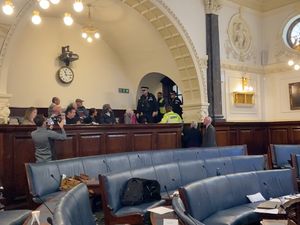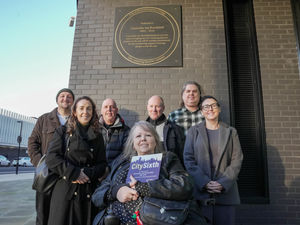Petitions can be a real force for change
When it comes to starting and signing petitions, the West Midlands has the lowest take up rate in the country.
Although around one fifth of Brits have signed a petition at some point – around 20 million last year alone – in this part of the world people are half as likely to have done so as those in the petitions 'hotspots' of Bristol and London.
The jury is out as to the reasons behind this, but it has prompted MPs to launch a charm offensive aimed at getting us West Midlanders more involved in the petitions process.
Their argument is a simple one. "People have to realise that they can use petitions to raise concerns they have with Parliament. It can result in real change," said Labour MP Helen Jones, who chairs the Petitions Committee.
Online government petitions were launched by David Cameron in a bid to allow the public to choose topics for parliamentary debates.
Once a petition has received 10,000 signatures it gets a response from the Government. If it gets to 100,000 then it is considered for a debate.
They differ from other petitions such as those run by change.org in one key factor – they go straight to the decision makers.
And the 'real change' Mrs Jones refers to has been evident with increasing regularity of late.
For example, this week the Department of Health was forced to publish a long-delayed report on the funding of vaccination programmes.
It followed an 820,000-signature petition for all children to be given the meningitis B jab.
But it was the committee's first inquiry that really hammered home how petitions can be a force for change.
Beginning in October last year, the probe centred on a petition calling for more funding for brain tumour research.

It was started by Maria Lester to mark the first anniversary of the death of her brother Stephen Realf, from a brain tumour.
The RAF officer was diagnosed when he was 19 and died aged 26.
His sister started the petition over concerns that while brain tumours are the biggest cancer killer among the under-40s, they receive just 1.5 per cent of the national spend on research into cancers.
Stephen's father, Peter, says the petition took time to build up momentum, having hit the 10,000 mark in six days before slowing down.
The Petitions Committee took up the cause, as did the local press, The Brain Tumour Charity and Tottenham Hotspur, the team Stephen supported.
It eventually reached 120,129 signatures, prompting a parliamentary debate. The public-led inquiry that followed initially met with a lukewarm response from ministers, but would result in a landmark document.
It concluded that funding into brain tumour research was inadequate and not given sufficient priority. It also said that sufferers and their families had been let down by successive governments.
Last week the Government, having conceded it needs to do more to increase funding, announced £20m for research into brain tumours over the next five years, which will be added to £25m from Cancer Research UK.
A working group of clinicians, charities and officials has also been set up to look at ways to address the need for more research.
"It is not the end, by any means, and there is still plenty of work to be done," Peter said. "To get to this stage is incredible. We never believed how far this would go."
Other petitions that have hit the headlines include one started by a woman who was sent home from work for refusing to wear high heels.
Although the Government refused to change legislation, the 152,000-signature petition prompted a national debate about sex discrimination in the workplace.
Meanwhile, Jamie Oliver's petition calling for a tax on sugary drinks contributed to the Government's decision to introduce a levy on the soft drinks industry this year.
The biggest response to a petition was the call to stop Donald Trump from making a state visit to the UK, which hit 1.8m last year.
Mrs Jones said: "It is easy to start petitions and there is advice available if people are unsure of the wording.
"The important thing for people to remember is that once a petition is up and running they need to publicise it to get people to sign it.
"The petitions that do well are often done by people who are savvy with social media. Churches, charities and community groups tend to have in built networks that encourage people to sign."
Visit petition.parliament.uk for more information.





